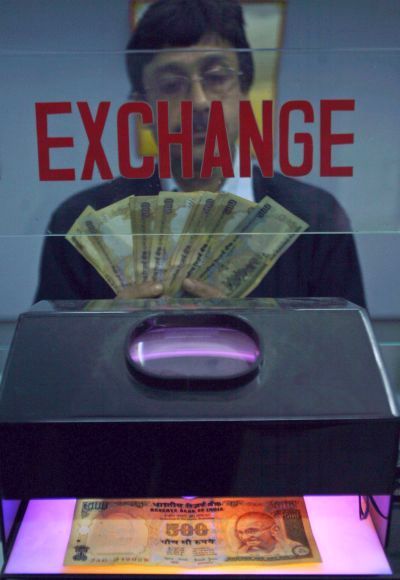 Disappointed by the Reserve Bank of India's (RBI)’s decision to keep key rates unchanged, top chief executives and finance heads of Indian companies now expect the central bank to cut interest rates by early next year.
Disappointed by the Reserve Bank of India's (RBI)’s decision to keep key rates unchanged, top chief executives and finance heads of Indian companies now expect the central bank to cut interest rates by early next year.
By then, inflation is likely to have come under control. But they say a rate cut, with the economy moving in the right direction, would have been a good signal to investors. India Inc was pinning hopes on a rate cut to boost interest rate-sensitive sectors such as two-wheelers, cars and real estate.
V S Parthasarathy, chief financial officer of Mahindra & Mahindra (M&M), said the policy was on expected lines and RBI’s consistent stand on policy rates was understandable, but a rate cut would have helped. “The auto industry is still looking for a strong demand revival; lower interest rates would have helped the cause."
The policy promises a cut next year, depending on some economic variables, and we hope this will be sooner than later, as it will also give the much-needed thrust to the “Make in India” initiative,” he said.
M&M’s comments come against the backdrop of falling sales of auto companies, especially the two-wheeler manufacturers.
“We were expecting a rate cut to aid the struggling automobile industry and provide the necessary impetus to consumer sentiment.
Even after a reduction in the excise duty earlier this year and cooling fuel prices, the customer mood has improved little.
There was a slight demand surge, but that was during the festival season and for new entries,” said P Balendran, vice-president, General Motors. V N Dhoot, chairman & managing director of consumer products maker Videocon, said the policy met expectations and the guidance was dovish.
This meant there was a chance of policy easing by February, subject to a moderation in inflation and the government’s efforts to meet fiscal targets.
“I think the central bank could have leveraged abating inflation risks to effect a rate cut, as high cost of credit has been dissuading industry from undertaking capacity expansion,” he said. Most CEOs said the investment cycle would resume only with a lag of nine to 12 months, as the existing capacity lying idle would have to be filled; industry would invest in new capacity only after that, on the basis of sustainable demand.
“Only after inflation has been controlled for a longer period can we hope for a gradual reduction in the interest rate by RBI,” said Prabal Banerjee, president (international finance), Essar group.
“Almost everyone expects RBI would like the benign inflation to sustain and not let it slip — though industry might clamour for a rate reduction. In my view, this is not going to affect growth, as even if the rate is reduced by 50-100 basis points, there is no reason to believe that industry will rush to invest,” Banerjee said.
Some CEOs said even a symbolic cut in policy rates at this juncture would have sent a strong signal that both the government and RBI were acting in concert to harness demand and take the economy to the higher orbit of growth.
Industry was hopeful of a rate cut particularly considering that China had surprised its market by reducing interest rates by 40 basis points, to attract investments.
“At a time when the economic recovery is still fragile and industry is growing at a faltering pace, a bold decision from RBI to ease interest rates would have benefited the credit-starved small and medium enterprises, and improved credit offtake by industry,” said CII President Ajay Shriram.
“What’s more, the recent softening of inflationary momentum and the movement of Consumer Price Index towards RBI’s comfort zone indicate that most of the conditions for bringing interest rates down are being fulfilled,” he added.
Lalit Kumar Jain, president of real estate sector’s lobby group, Confederation of Real Estate Developers’ Associations of India, called for a government intervention to facilitate low-cost funding for real estate developers and buyers.
“For a long time, RBI has been consistently taking steps that do not encourage the real estate sector, despite the recognised fact that the industry contributes handsomely to the country’s economy, apart from creating massive employment,” he said.











